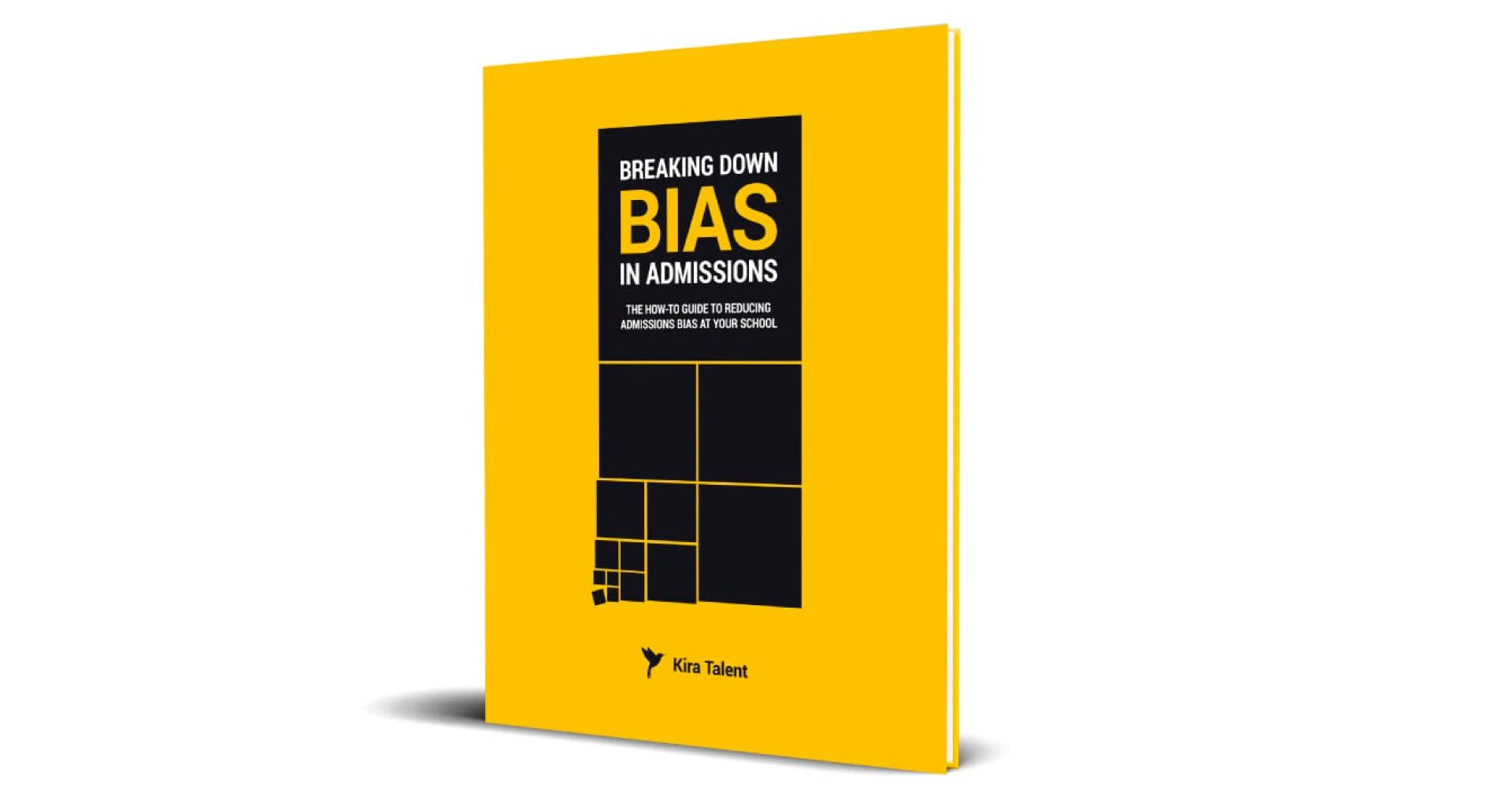McMaster University’s Faculty of Engineering undergraduate programs consistently rank among the top engineering programs in the country. The school’s unique approach to engineering design, which emphasizes hands-on, project-based and experiential learning, allows undergraduate students to work with real clients to develop solutions to real-world problems.
Each year, the Faculty of Engineering receives more than 16,000 applications, with 13,000 unique applicants meeting the academic requirements for a spot in one of their four direct-entry undergraduate programs.
“We want to admit the students who are most likely to succeed in the program and beyond — those who will use their engineering degree to make a difference in the world,” shared Sarah Dickson-Anderson, Associate Dean Undergraduate at McMaster's Faculty of Engineering. “We’re looking for the students who are not only strong academically, but who have key traits and skills such as drive, leadership, resiliency, and an eye for innovation.”
Since 2016, McMaster's Faculty of Engineering has been using an Asynchronous Assessment in Kira Talent to help them efficiently identify those traits in their applicants.
Identifying more best-fit applicants through holistic review
“Before we added the Kira assessment, we were making our admissions decisions based primarily on grades," she continued. "However, so many of our applicants had 90% and above grade averages, making it very difficult to differentiate between them.”
“There’s a lot of insight we gain from our Kira assessment that you just can’t get from a transcript,” she continued. “We can see how an applicant approaches and thinks through a question, how articulate they are in their answers, and how engaged they are in the process."
"With Kira, we’re making admissions decisions based on a more comprehensive and holistic view of our applicants.”
Working with the team at Kira, McMaster Faculty of Engineering customized their assessment to evaluate for the traits and skills that they identified as being most predictive of student success in their programs.
After applying at the Ontario Universities’ Application Centre (OUAC) online portal, Faculty of Engineering applicants receive an invitation from Kira Talent to complete a written and video assessment.
“Once we have the student’s transcript and completed Kira score, we can assess them for admission into our program," shared Dickson-Anderson. "It’s important to us that we consider both components together, as we believe in looking holistically at each applicant.”
“Being able to tailor the competencies to our programs’ specific needs allows us to get the most value out of the assessment.”
Applicant results delivered on your timeline
The final piece of the puzzle came in the form of Kira’s Reviewer Services. Seamlessly integrated with the Asynchronous Assessment, Kira gives admissions teams the ability to tap into a team of over 30,000 trained reviewers to score applicants’ assessments.
“We had 13,000 applicants complete a Kira assessment this year, each of whom needed to be reviewed by at least two reviewers,” shared Dickson-Anderson. “We just don’t have enough reviewers in-house to score that many assessments, and beyond that, we don’t have the capacity to train them properly in order to ensure that they are scoring applicants correctly and objectively.”
“We knew we needed to bring another component into our admissions process and Kira's Reviewer Services gave us a way to do that without completely overwhelming our staff and faculty,” she added.
Learn how Roseman University is saving over 800 hours per cycle with Reviewer Services
Once an applicant completes their assessment, the Kira platform automatically assigns a designated number of reviewers to watch and score their responses within the school’s specified timeline.
“Our deadline to apply is in January and Kira has all of the assessment scores back to us by the end of February so we can administer first-round offers in March,” explained Dickson-Anderson.
“That’s a five-week timeline to score 13,000 assessments.”
“Every single one of our reviews gets completed in that short period of time, enabling us to get offers out to our applicants earlier,” she added.
Better predicting student success
“We’ve had the Kira assessment in our admissions process for several years now and we’ve seen a number of really great outcomes,” shared Dickson-Anderson. “We’re enrolling really strong students who are doing extremely well in our programs. It’s not only something that we’ve heard from our professors but it shows in our very low attrition rate. That speaks to the fact that Kira is helping us admit applicants who will succeed in our programs."
“With Kira, we’re able to run our admissions process smoothly and with minimal stress. An incredible amount of work goes into attaining the level of detail we need to identify and admit our best-fit applicants, and Kira takes that all on for us.”
“Kira is a trusted partner in our admissions process,” she continued. “We need to be able to rely on our admissions partners to help us support our applicants throughout this journey. By having Kira in our admissions process, we’ve been able to increase the level of transparency and communication between our centralized colleagues in the admissions department and our Faculty of Engineering.”
A process customized to your needs
“We’ve gotten a lot of positive feedback from our faculty on the admissions process with Kira, and we’re hearing from other faculties across the university as well,” shared Dickson-Anderson. “Seeing how it’s enhanced our admissions process, they’re understanding what a Kira assessment could do for their programs.”
Holistic admissions represents an ideal for higher education admissions teams.
Evaluating applicants for multiple dimensions including GPA, test scores, communication and language skills, as well as work and life experience, provides deeper insight into your applicant pool.
The benefits of a holistic admissions process are numerous. However, so can the resources required to manage one.
Now, with Reviewer Services, you can add a new dimension of assessment to your holistic admissions process without overwhelming your staff and faculty.
Efficiently identify applicant fit at scale
When you add an Asynchronous Assessment in Kira Talent to your admissions process, you have the opportunity to access a team of 30,000 professional reviewers. Trained on your unique criteria and rubrics, Reviewer Services acts as an extension of your team, delivering comprehensive results within your desired timeframe so you can make faster, more informed admissions decisions.
Find your best-fit students with a bespoke assessment
Seamlessly integrated with Kira’s Asynchronous Assessment, programs using Reviewer Services get all the benefits of a comprehensive holistic review without the additional work.
Each step of the assessment process is customized for your program, including questions, rubrics, platform branding, as well as welcome and closing videos that help applicants learn about your program as they complete your assessment.

Once applicants have completed their assessment, Kira automatically assigns their responses to be reviewed by your specified number of raters. The raters score responses on the Kira platform, allowing your team to seamlessly review all your applicants in one place.
Access industry-leading scoring
Tap into the team of professional raters with decades of experience scoring the GRE®, TOEFL®, and Praxis® tests.
Trained on your unique criteria and rubrics, with Reviewer Services you get the applicant insights you need, when you need them, to make timely admissions decisions no matter what your internal team capacity is.
Already using Kira? Reach out to your client success manager to learn more about reviewer services.
Over the past several years, the University of Texas (UT) at Austin College of Pharmacy has gone through several iterations of their admissions process. Transitioning from interviews on-campus to online via Zoom, Texas Pharmacy’s admissions process had become a tapestry of disparate processes held together by manual workarounds.
“By transitioning our interviews online, we opened a window for us to attract and enroll a more diverse applicant pool,” shared Gregory Caldera, the Director of Admissions and Student Services at the University of Texas at Austin College of Pharmacy.
“We wanted to maintain that accessibility, but we needed to do it in a way that was sustainable for our admissions team in the long run.”
“We began looking for an interview platform that integrated both the live virtual experience and an assessment submission tool and dashboard,” he continued. “That’s when I came across Kira Talent.”
Evolving the admissions process
Since 2019, Texas Pharmacy has used a Multiple Mini Interview (MMI) to ensure consistency as well as structure throughout their admissions interviewing process.
Kira Talent supports a wide range of interview styles, from Asynchronous Assessments to real-time one-to-one interviews, panel interviews, and MMIs. Find out how Kira Talent can support your interview process.
“When the interviews were originally held in person, reviewers scored applicants using scantrons,” shared Caldera. “Inputting that data was a long and clunky process, but it was what we had always done.”
“In 2020, we transitioned both the interview and the scoring online with Zoom and Qualtrics,” Caldera continued. “Zoom was our quick fix in order to meet our admissions deadlines for that year, but we very quickly realized that the platform required a lot of background support to keep things running smoothly.”
“That burden fell on our staff and student co-chairs by necessity,” he explained. “We simply needed more hands to be able to run our Zoom interviewing process.”
Piecing together disparate tools
From managing breakout rooms and transition timing to flipping between screens to record scores, the disjointed process was putting significant strain on the Texas Pharmacy admissions team.
“Trying to use multiple tools in ways they weren’t meant to be used and then integrating all those systems into one disjointed process was a recipe for stress,” shared Caldera.
And it wasn’t just behind the scenes where the process was causing strain.
“Our interviewers often struggled to shift smoothly between Zoom and Qualtrics to score applicants,” Caldera explained. “And we were relying on applicants to correctly click the right links at the right times.”
“With Kira, those challenges are taken care of.”
Streamlining the admissions interview
“The University of Michigan College of Pharmacy was on a webinar to discuss their experience with Kira and give insight into their interviewing process,” shared Caldera. “I started to explore Kira as an option for our admissions process and found that it checked all of our boxes and then some.”
With Live Interviewing in Kira Talent, Texas Pharmacy has been able to retain the accessibility benefits of the virtual experience while eliminating the technical hassles.
“Our interviewers no longer have to manage multiple windows or multiple programs,” explained Caldera. “They’re able to engage more with the applicants and score them in the moment.”
“For us, that means our interviewers are not only more efficient at reviewing, but they’re more effective with the interview engagement.”
Kira moves applicants automatically through each station, according to a set schedule, while interviewers evaluate and score applicants in-platform. At the end of the interview, Kira’s integration with PharmCAS transfers all the scores and notes directly into Texas Pharmacy’s existing management system.
“Applicants move through several stations of one-on-one interviews and finish with a group activity, which helps us see how well applicants can work in teams,” Caldera shared. “Kira helped us build a schedule that allows us to seamlessly shift from one-on-one interviews to group sessions. ”
“It was very important for us to facilitate a face-to-face conversation between our interviewers and applicants,” Caldera continued. “Kira gave us a way to do that without creating any barriers for our applicants.”
Attracting a wider pool of diverse applicants
“With Kira, we’ve been able to scale our interview process without any additional burden on our admissions team,” shared Caldera. “The platform eliminated a lot of the manual work that went into coordinating our interviews, both on Zoom and in-person and the Kira team helps us manage the rest with on-hand support before and during the interviews. Kira has not only helped us increase the efficiency and ease of our admissions process but it's also allowed our staff and student co-chairs to go back to focusing on applicant engagement.”
By removing the travel and cost barrier associated with on-campus interviews, Kira is also helping Texas Pharmacy reach a more diverse pool of applicants.
“Kira allows applicants to interview without the financial burden of travel, making us more attractive to under-represented minority applicants, nontraditional-aged students, and applicants who live out of state,” Caldera explained. “It’s given us the opportunity to recruit applicants who may have not applied to our program if travel was required for the interview.”
Getting an applicant’s perspective
“The way the faculty interacted with us during my Texas Pharmacy interview was a huge factor in my decision to come to UT,” shared Sydney Bryant, a Doctorate of Pharmacy Candidate at UT Austin College of Pharmacy, Class of 2026.
“I interviewed with five different schools during my application process, four of which were virtual interviews and one which was in-person,” she continued. “Most of the virtual interviews were on Zoom, with the exception of Texas Pharmacy.”
“My overall experience interviewing virtually compared to in-person was so similar that it would have been nice to save the travel time and do it all online.”
“I had a five-hour drive to attend the in-person interview, which meant that I had to miss some school,” Bryant shared. “Ultimately, I felt like I got the same amount of face-to-face interaction through my Kira interview for Texas Pharmacy as I did during the in-person interview for another program. I was able to have the same kind of in-depth interaction with my interviewers and the flow of conversation was similar because it still felt like we were face-to-face.”
“Compared to the in-person interview process I went through, the virtual experiences definitely helped reduce anxiety and made me feel more relaxed,” she continued. “With Texas Pharmacy, this was especially true. For my interviews on Zoom, I had to hop from one link to another, so the whole time I had this underlying sense of anxiety that I might mess up and click the wrong link at some point and end up in the wrong place at the wrong time. With Kira, I didn’t have to keep track of links at all. Once the interview started I could sit back from my computer and just focus on my conversation with each interviewer.”
Keeping up with modern education
“We’re now seeing healthcare delivered to patients through all kinds of different mediums,” shared Caldera. “The rise of telehealth means that virtual technology is becoming increasingly integral to the healthcare profession.”
“At UT Austin College of Pharmacy, we want to make sure that our students are exposed to these new practices,” he continued. “We’re aligning with how technology is being used in healthcare practice today, and Kira Talent is a part of that vision.”
At Spalding University, a small, private college in Kentucky, USA, the hybrid Doctor of Physical Therapy (DPT) program is setting a new standard for accessible education.
“You often hear about accelerated models in physical therapy education, where students are taking heavier course loads in order to complete their degree in three years instead of four,” shared Dr. Kay Tasso, the program director at Spalding University DPT. “At Spalding, we refer to our curriculum as a decelerated model. By having students enroll in fewer courses per semester, we’re not only improving students’ retention of the material, we’re also making it accessible to non-traditional students who are balancing school with work and family requirements.”
“Spalding DPT’s mission is to make PT education accessible by reducing the obstacles and barriers that a traditional program inadvertently creates for many applicants,” she continued. “Conducting our admissions interviews in Kira Talent was a natural step in achieving that goal.”
Addressing challenges in the traditional interview process
The primarily online curriculum is what Spalding classifies as a ‘low residency’ program, with lecture material presented online and students only required on campus once per month to complete their labs.
“As opposed to programs that have, in recent years, tried to shift a traditionally-designed curriculum online, our course strategies and teaching methods were designed to be delivered online,” shared Dr. Tasso. “We wanted our admissions process to follow that methodology as well.”
“We started designing the admissions process for our brand-new program in 2021,” she explained. “We decided to use Liaison’s PTCAS for our enrollment platform, and they made us aware of this great integration with Kira Talent.”
“I helped manage on-campus interviews in my positions prior to joining the team at Spalding DPT, so I had a clear idea of the barriers they present,” Dr. Tasso continued. “On the administrative side, in-person interviews are extremely time- and labour-intensive, and they carry significant costs for both the applicants and the program. The pressure around these interview days means that students are often very nervous and may have difficulty expressing themselves. That leads to the admissions committee potentially not getting an accurate understanding of an applicant’s character and communication skills.”
“There was also hesitancy surrounding the travel requirements, given that we are a hybrid program,” added Dr. Elisa Zuber, the Chair of the Kosair Charities School of Physical Therapy at Spalding University. “The program is designed to be accessible to busy, as well as non-traditional, students from across the United States."
"An on-campus interview would entirely contradict that vision.”
“Hearing other programs talk about their positive experiences with Kira at an American Physical Therapy Association (APTA) meeting really sealed the deal for us,” she added. “Kira has a long track record of success with physical therapy programs. That really contributed to our confidence that Kira could help us deliver our admissions process.”
Building an interview to fit the admissions process
“Kira makes our admissions process easier, less expensive, and much more efficient.”
“From day one, the process has been really smooth,” Dr. Zuber continued. “The structure of the interview was already there, we just needed to decide on the details.”
The question and rubric workshop during the onboarding process helped Spalding DPT determine how to score the responses in Kira in order to best suit their goals for the assessment.
“The objective of the interview is to assess applicants’ communication skills,” Dr. Tasso explained. “To do so, we focus strictly on the basics — do they answer the question and can they clearly explain their reasoning?”
“If a rating scale is too nuanced, reviewers may overthink their ratings or interpret the differences between scores in their own way,” Dr. Zuber continued. “So, we decided on a concise three-point scale rubric to capture the information we wanted about each applicant. ”
“As the assessment is on-demand and applicants have access to Kira’s practice suite in order to get comfortable with the technology, Kira helps mitigate the influence of external factors that could affect their performance,” Dr. Tasso added. “With Kira, we’re getting a more authentic assessment of our applicants' communication skills.”
Managing all the costs — time and financial
“Affordability is a big concern in physical therapy education as well as in the wider healthcare field,” shared Dr. Tasso. “We’re very conscious of the financial burden put on applicants who are trying to get into the healthcare field, and we’re actively trying to reduce those barriers as much as possible. With traditional interviews, there are many costs for both the institution and the applicant that don't necessarily get factored in upfront. Even if you’re recruiting locally, those applicants are taking time out of their busy schedules and money out of their pockets to pay for gas and parking.”
“When you factor in the time-savings from aspects like Kira’s 24/7 applicant and reviewer support, it’s clear,” she continued.
“Kira is worth every single penny.”
By enabling Spalding DPT to dig a little deeper into their applicant pool without overwhelming their small team, Kira helps deliver a comprehensive, and convenient, holistic review.
“Having Kira in the admissions process helps us ensure that what we’re seeing in the application is the reality,” continued Dr. Tasso. “At the end of the day, Spalding DPT is fully invested in our students’ success. We want to ensure the applicants we offer admissions to have the right skills to be successful in the program and beyond.”
Setting up admissions for future success
“Kira has been a really great asset to our program,” shared Dr. Zuber.
“The faculty love the process and find it very valuable,” shared Dr. Tasso. “We’re able to have the entire faculty involved in the reviewing process because they can watch and score responses on their own time, when it's most convenient for them. Then we can get together and discuss applicants at our faculty meeting.”
“Kira took the time to get to know us and our processes, and to help us develop questions that meet our program's intent,” added Dr. Zuber. “Working with the Kira team has brought a new level of ease to the admissions process, from building to monitoring to making any changes. Add to that them being a really friendly and responsive team to work it, and it has been nothing but a hugely positive experience.”
“Kira will continue to be a part of our process for years to come.”
Ranked by The Financial Times (FT) as the top executive MBA program in the Nordics and one of the best business schools in Europe, The Stockholm School of Economics (SSE) has been a driving force behind some of the most impactful Swedish businesses of the last 100 years.
Enrolling its first class in 1909, the school has stayed true to its original mission of providing industry leaders with specialized education in business practices and theories in order to help them innovate on a global scale. Today, the Stockholm School of Economics counts more than 110 companies and organizations – including Ericsson, IKEA, and H&M – as partners.
Evaluating working professionals
“The school has a strong connection to business life,” shared Ann-Kristin Bjurström, the Program Advisor for the Executive MBA at the Stockholm School of Economics.
This is especially true for the Executive MBA at SSE. The school's specially developed MBALive® pedagogy, a hands-on style of learning which focuses on making research-driven theoretical frameworks applicable to real managerial issues and solutions, attracts industry professionals with decades of experience in their fields.
“Classes in the SSE MBA are quite interactive and favour live projects over traditional lectures," Bjurström explained. "Working in teams, students select one organization where a group member is employed to work with for their project, giving them access to the organization and the possibility to get real hands-on learning in a live business environment."
"Our program is an academic degree but in our classrooms, the focus is not just on learning the theories but also putting them into practice," she continued. “To succeed in this environment, candidates need to be self-aware and they need to work well with others, whether they’re of a different age group, they work in a different industry, or they have a different set of interests and experiences.”
“Kira Talent helps us ensure that our candidates meet those requirements.”
Inviting the right applicants to interview
As the school’s reputation has grown, so has the global interest in the Executive MBA at the Stockholm School of Economics.
“We have a significant amount of interest in the program, but we are very invested in making sure that we’re bringing the right students into the classroom,” Bjurström shared. “We recruit working professionals who are already successful in their own right, so we need to identify the ones who have a clear idea of how SSE can help them reach the next stage of their career.”
“Kira allows us to assess candidates in a way that more accurately represents the knowledge and skills they’ve acquired throughout their careers.”
Discover how Kira is helping Imperial College of Business School engage top applicants earlier
Getting deeper insights in admissions
With 2000 students enrolled at the school and around 50 in each executive MBA cohort, the Stockholm School of Economics is able to work closely not only with its students and alumni but also with its applicants.
“Part of what makes the program unique is that we are such a small school,” shared Bjurström. “We’re very engaged with our students and are very high-touch throughout their time at SSE.”
“Our assessment in Kira complements that experience,” she continued. “We screen all of our candidates and verify their qualifications before inviting them to submit an official application. All applicants who are shortlisted are then invited to complete a Kira assessment and schedule a live interview.”
By introducing the Asynchronous Assessment as a pre-requisite to the live interview, the Stockholm School of Economics has been able to capture candid applicant responses in order to gain a more authentic appraisal of the applicant’s personality and experience.
“We can see quite quickly when watching the responses in Kira which applicants are self-aware, confident and experienced as a manager and a leader, and which are not," Bjurström explained. "When we then meet them in the face-to-face interview, we have an idea of how they communicate, and we’re able to follow up with clarifying questions if we feel we haven’t gotten enough detail.”
“Through Kira, we’re able to get a better understanding of our candidates and gather the information we need to dig deeper during the in-person interview to make a final decision on their suitability for the program.”
“In the cases where we have questions or concerns about an applicant, we’re able to share the video recordings in Kira with our academic director to get an additional opinion,” share Bjurström.
“With Kira, we’re able to make more confident decisions on what candidates to recommend to the admissions board.”
2022 marked a return to future-focused strategies across education admissions. After years of adapting processes to meet immediate needs, admissions leaders are now approaching innovations in their admissions processes with an eye to the future, and are embracing the changes they need to make to help attract and enroll strong cohorts for years to come.
Learn more below about how teams met their admissions goals in 2022 with processes powered by Kira.
- The Kira enhancements that clients loved this year
- How schools are using Kira
- Insights by program type
- Kira Client Experience Reports from other years
The Kira enhancements that clients loved this year
Over the past decade and a half, schools have brought Kira into their admissions processes for a wide array of reasons. Whether their focus is on increasing yield, fostering diversity, streamlining clunky processes, or gaining a deeper understanding of applicant values and motivations, our flexible technology and team of experts are on-hand to help admissions leaders achieve whatever their goals may be.
That’s why in 2022 we focused our product development on building new features and enhancements throughout the platform, that help make Kira better than ever for applicants, admin and reviewers alike.
What’s new at Kira Talent
Discover the latest features and upgrades released at Kira Talent and what they can do for your admissions team.
Learn more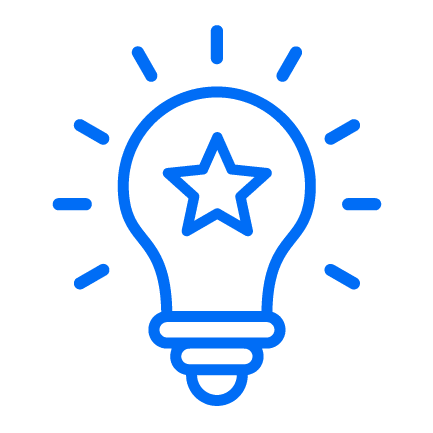
How schools are using Kira in 2023
As admissions leaders look to future-proof their processes and attract the next generation of applicants, we’re proud that they continue to see Kira as the best option for helping them get there.

A measure of customer loyalty and satisfaction, Kira’s NPS score is higher than titans like Tesla (NPS 35) and Netflix (NPS 48)!
Of course, we know better than anyone that a single score can’t tell the whole story. That’s why we asked our clients what aspects of the platform gave them the most value this year. Here’s what they had to say.
61% of schools shared that the greatest benefit of using Kira in 2022 came from the increased efficiency in their admissions process.
With Kira’s streamlined scheduling, built-in structured rubrics, and integrated score pairing, admissions teams have been able to eliminate many repetitive manual tasks and save hours of work per cycle.
In fact, 45% of schools are saving over 40 hours of work per cycle with Kira Talent.
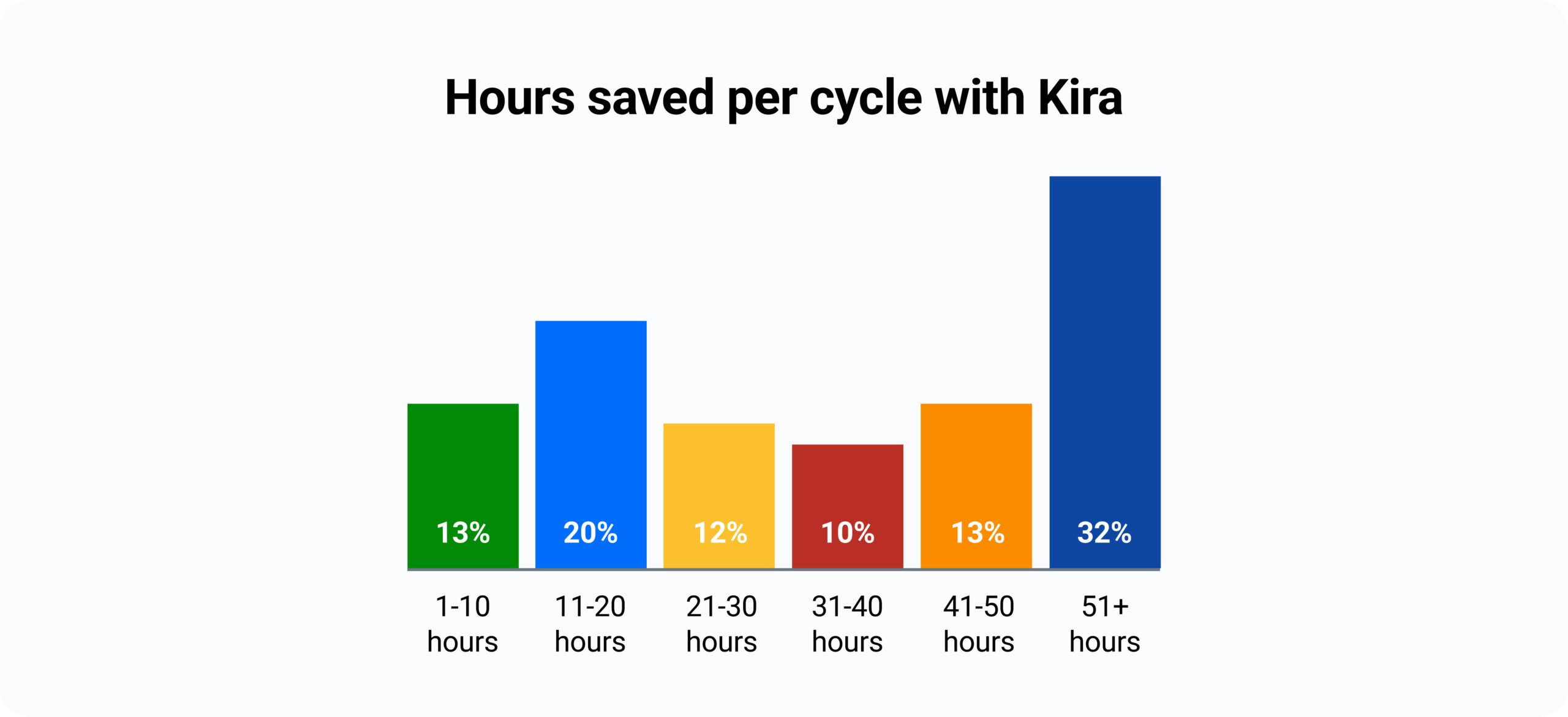
The flexibility of the Kira platform and the range of assessment and interview tools available meant that programs were able to add these time-saving features where they needed them most.
“Kira has allowed us to streamline the operations, improve our efficiency, and decrease our faculty, interviewer, and staff utilization, helping us interview more applicants in less time.”
- Anne Holtzman, the Program Manager of Admissions and Financial Aid at NYU Grossman School of Medicine.
Whether they were looking to more efficiently pre-screen applicants or more conveniently interview candidates for final admissions decisions, 2022’s admissions teams saw significant value in Kira at various stages of their admissions process.
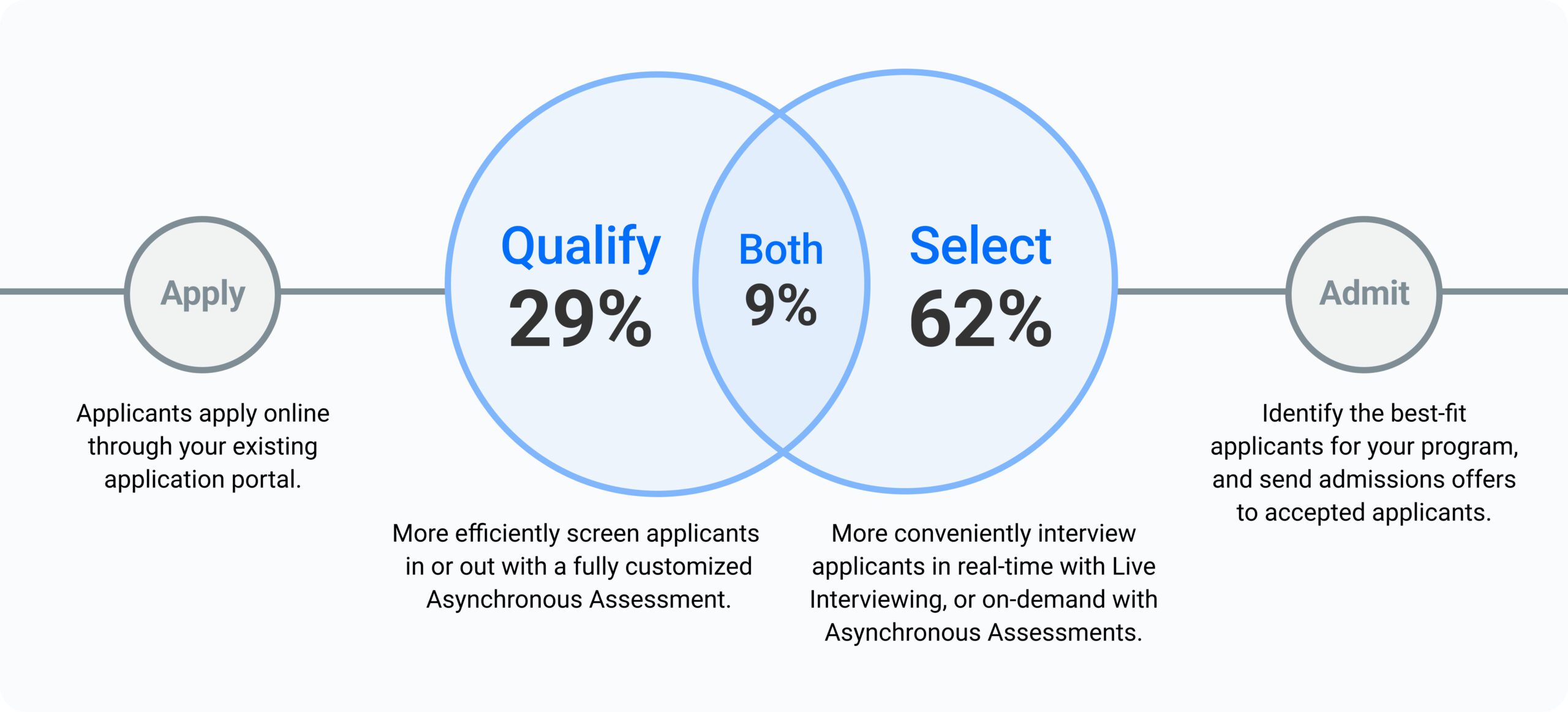
For the majority of schools, Kira offered a new and improved method of delivering their traditional interview, prompting them to transition their tried-and-true process online. But for another 29% of schools, an efficient and budget-friendly process in Kira made it possible to add interviews or assessments as a net new component of their admissions process — giving them more comprehensive insights into their applicant pool.
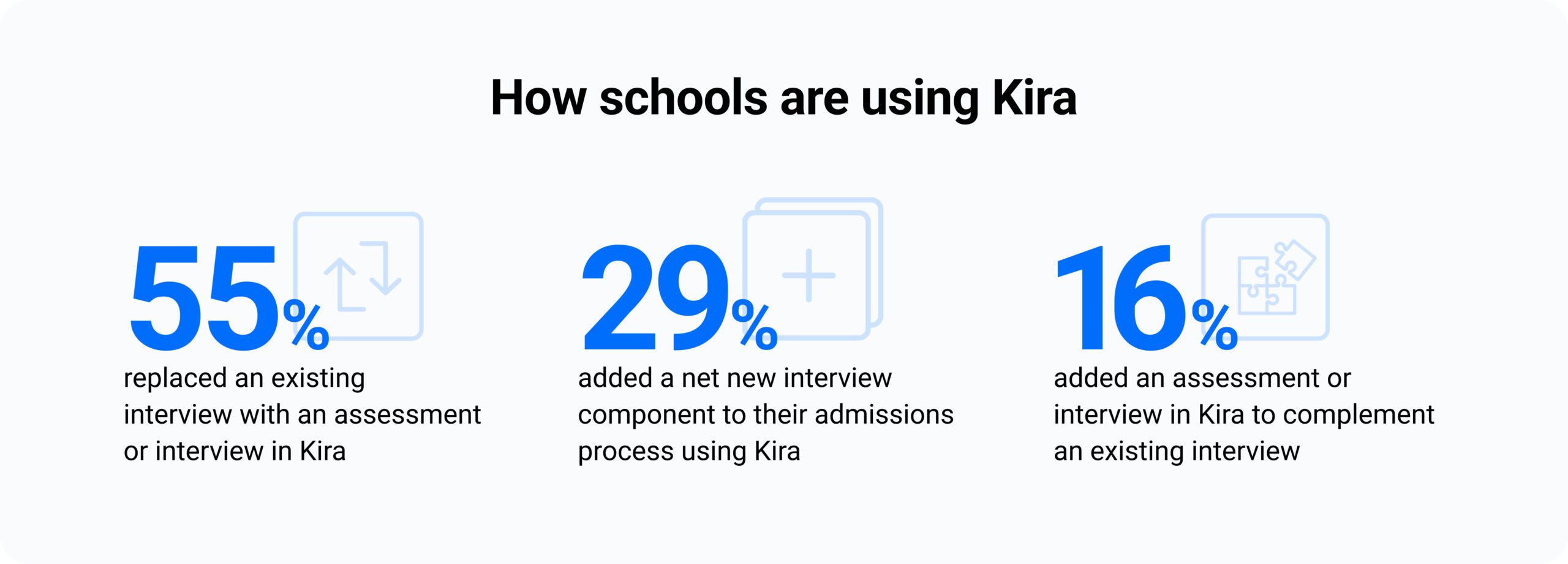
Deeper insights by program
Want to learn more about how your peers are using Kira Talent? Choose from the list of program types below to see how Kira is helping schools and programs like yours future-proof their admissions process.
- Graduate Management Education
- Graduate Health Sciences
- Law and Humanities
- Scholarship and Mentorship
- Undergraduate
- K-12
Click here to learn more about why we publish this data and how we collect and use client feedback
Kira Client Experience Reports from other years
Kira Client Experience Report 2021
Kira Client Experience Report 2020
For K-12 schools, efficiency and effectiveness were top of mind in admissions in 2022. 40% of schools named efficiency as the greatest benefit of using Kira, valuing how the platform has helped them streamline the interview process. For another 40%, the effectiveness of the assessments was the biggest benefit, as it helped them increase comfort and convenience for applicants and their families while providing deeper insights into applicants’ personality traits and soft skills.
The York School
Learn how The York School is identifying the right students for their classrooms while distinguishing themselves from competing schools.
Read more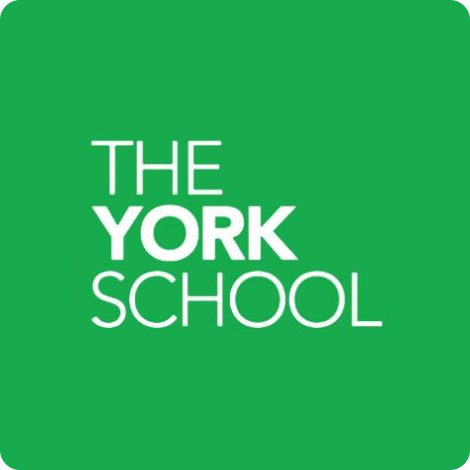
Where Kira fits in the K-12 admissions process
Kira fit flexibly into different schools’ various admissions processes in 2022, with schools using the platform to do everything from aptitude assessments to parent and guardian interviews.
“Kira allows us to interview our applicants in a safe manner that's not going to be cumbersome to families.”
- Dr. Beth-Sarah Wright, the Director of Enrollment Management at Holy Innocents’ Episcopal School.
For 80% of schools, Kira allowed enrollment teams to gather deeper insights into applicants' behaviours and values, helping them identify their best-fit students and make final selections to build well-rounded and dynamic classrooms.
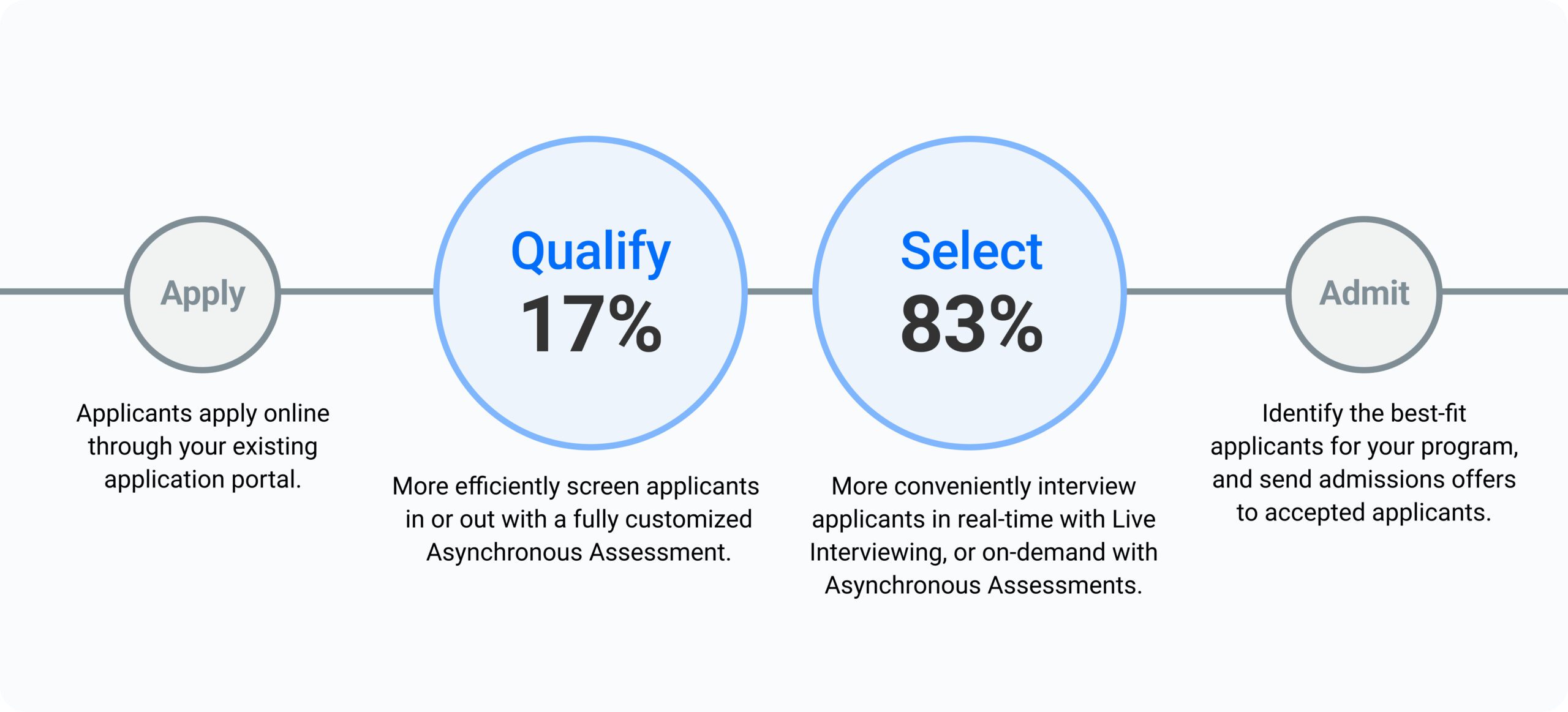
By allowing applicant families to complete the assessment when and where is most comfortable for them, Kira helps our K-12 partner schools reduce the stress on applicants and their families, and give them the opportunity to put their best foot forward.
80% of these schools added Kira as a new step in their admissions process, often complementing a live interview or campus visit. With a Kira assessment or interview providing a structured evaluation of the applicant, faculty and enrollment managers are able to reallocate their time to other enrollment activities and form deeper connections with applicants and their families.
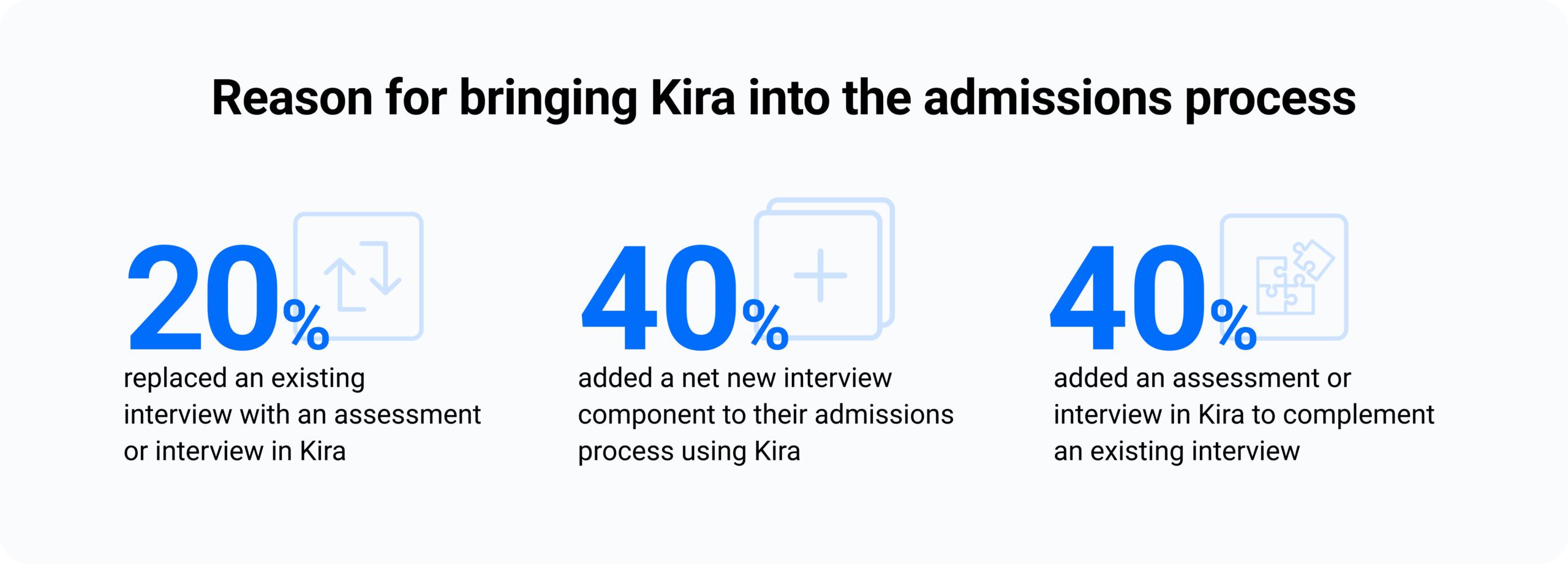
What’s top of mind for K-12 schools in 2023?
![]() “Increasing the number of applications from underrepresented groups.”
“Increasing the number of applications from underrepresented groups.”
![]() “Identifying applicants whose motivations and values align with our school mission.”
“Identifying applicants whose motivations and values align with our school mission.”
![]() “Diversifying our applicant pool.”
“Diversifying our applicant pool.”
Learn more about Kira Talent for K-12 Schools
With the average program assessing thousands of applicants per cycle it’s hardly a surprise that 86% of undergraduate programs named efficiency as the biggest benefit of using Kira Talent in 2022.
In fact, 67% of undergraduate programs reported saving more than 40 hours of work per cycle with Kira.
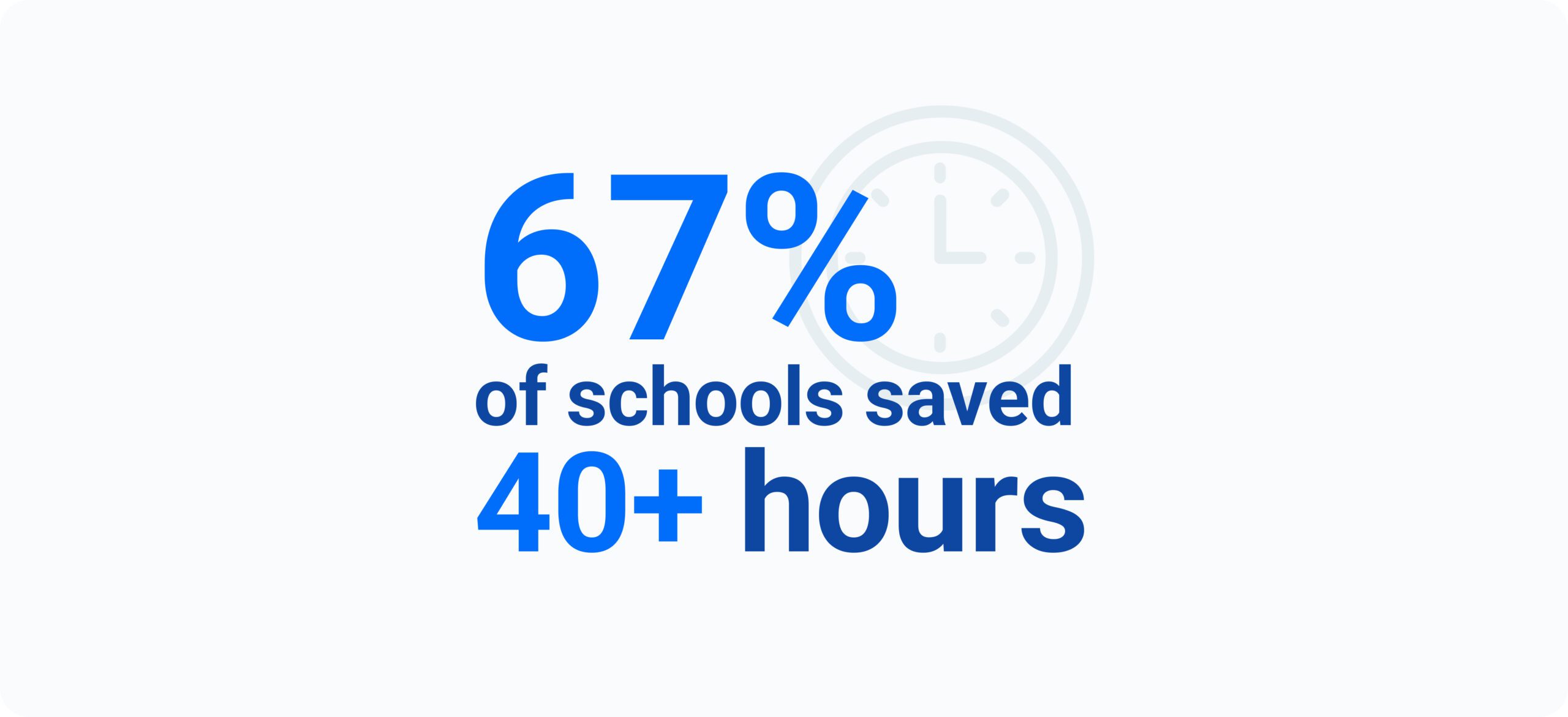
University of Missouri, Sinclair School of Nursing
Learn how Missouri Nursing is saving over 200 hours in the admissions process without sacrificing their holistic admissions practices.
Read more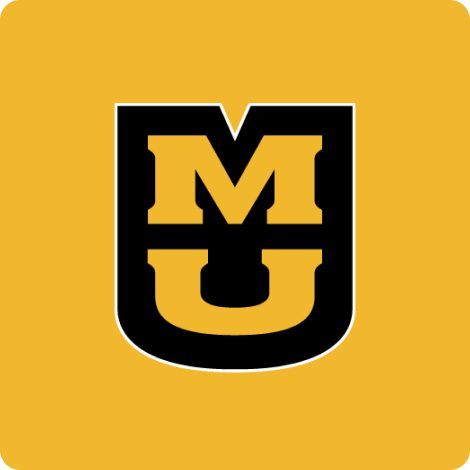
Where Kira fits in the undergraduate admissions process
These time savings are why all of these undergraduate programs transitioned existing interviews onto the Kira Platform — and why 57% are now able to gather deeper insights about all of their applicants without overwhelming their admissions team
“We interview around 1000 students per cycle. Coordinating in-person interviews at that scale is a massive undertaking. At the end of the day, we are making better use of our time and resources using the Kira Talent platform.”
- Renato Guimarães Ferreira, Program Director at Fundação Getulio Vargas’ Business Administration School in São Paulo (FGV EAESP)
For another 15% of schools, Kira's on-demand assessment allowed admissions teams to meet and assess international applicants regardless of time zones or schedules.
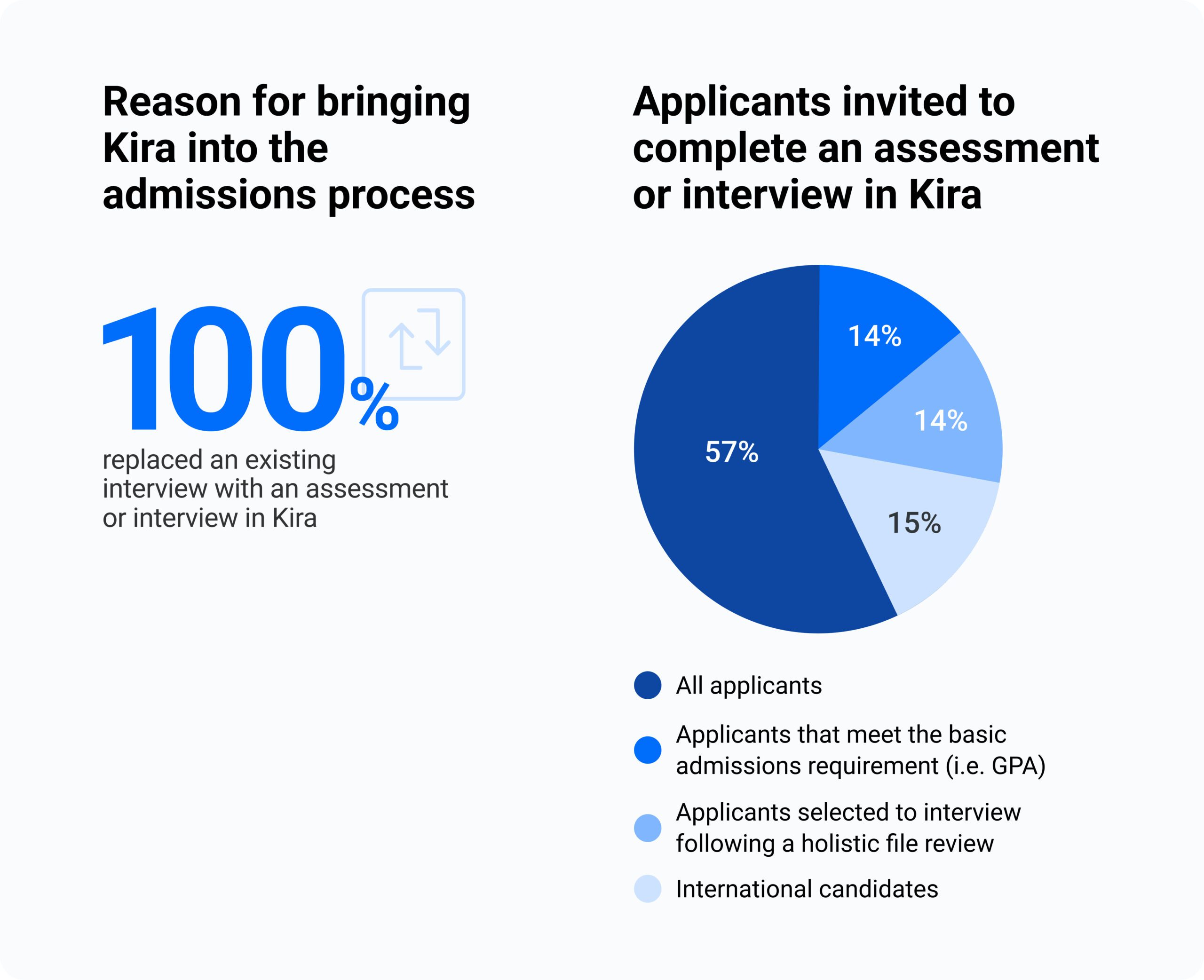
What’s top of mind for undergraduate programs in 2023?
![]() “Gaining deeper insights on applicants and identifying the most outstanding students for early offers.”
“Gaining deeper insights on applicants and identifying the most outstanding students for early offers.”
![]() “Broadening our reach and diversifying the geographical origin of our applicants”
“Broadening our reach and diversifying the geographical origin of our applicants”
![]() “Incorporating new ways of assessing applicant ability as GRE scores have declined due to the Covid-19 pandemic.”
“Incorporating new ways of assessing applicant ability as GRE scores have declined due to the Covid-19 pandemic.”
Learn more about Kira Talent for undergraduate programs.
Efficiency was key for scholarship and mentor programs using Kira in 2022. 50% of scholarship and mentor programs reported saving more than 20 hours of work per cycle with Kira.
In fact, 67% of scholarship and mentor programs named efficiency as the biggest benefit of conducting their interviews in Kira Talent.
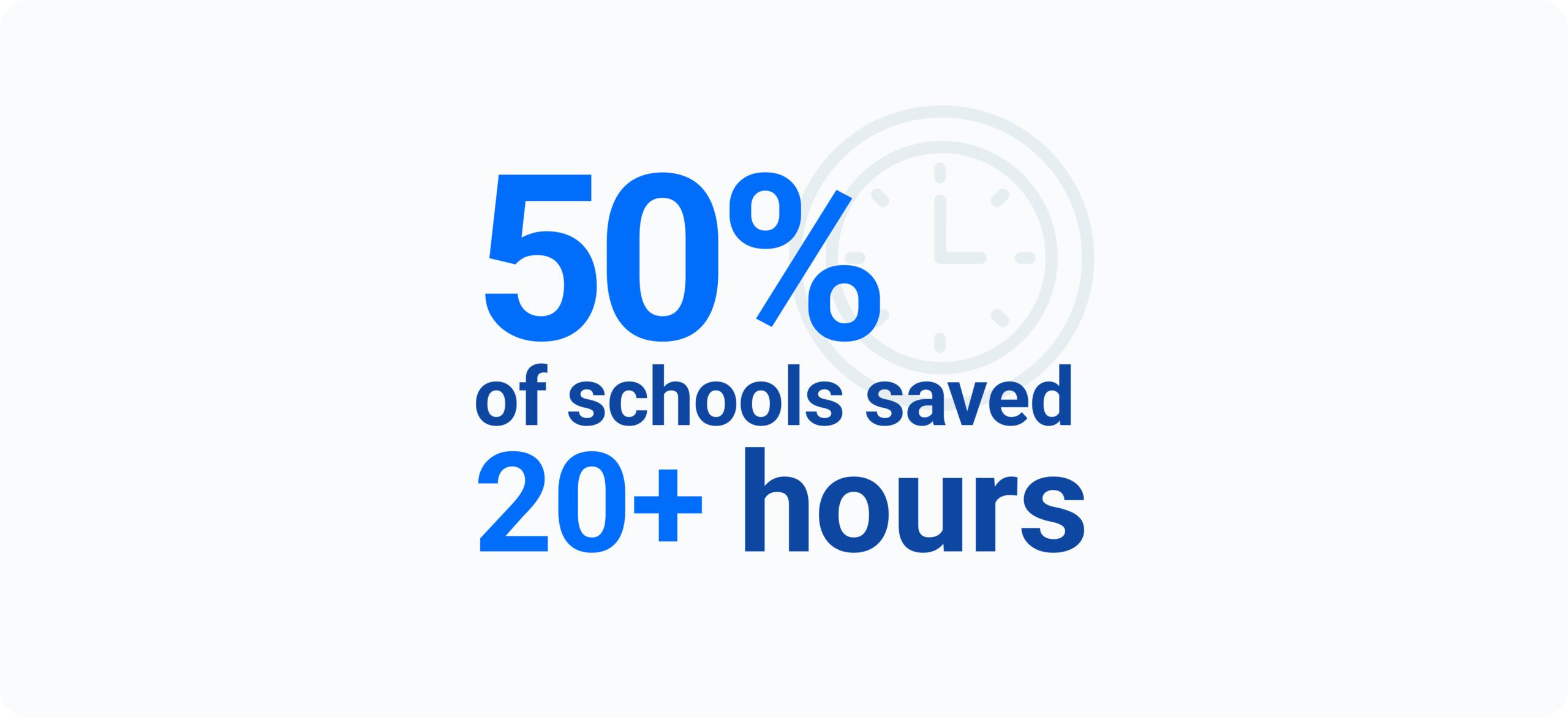
The Emory College Woodruff Scholars Program
Learn how the Emory College Woodruff Scholars Programs reduced time spent coordinating interviews while supporting a holistic selection process used to make more defensible selection decisions.
Read more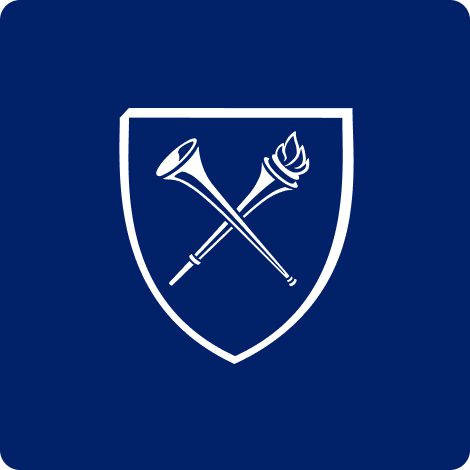
Where Kira fits in the scholarship and mentorship selection process
With efficiency top of mind, it’s hardly a surprise that all scholarship and mentor programs chose to evaluate applicants using an Asynchronous Assessment in Kira. The on-demand assessment offers selection committees deeper insights into applicants' traits and soft skills, including leadership and communication, without the organizational burden of a traditional interview.
“The competencies we developed with Kira provide objective, measurable metrics for our mentor selection. We’re getting more qualified candidates with skills that more closely align with the values and goals of the program.”
- Dallyce Bialowas, Student Engagement Specialist at the University of Alberta Faculty of Science
For 83% of scholarship and mentor programs, Kira fit into the final step of the selection process, giving selection teams the comprehensive insights they needed without inconveniencing staff, faculty, or applicants.
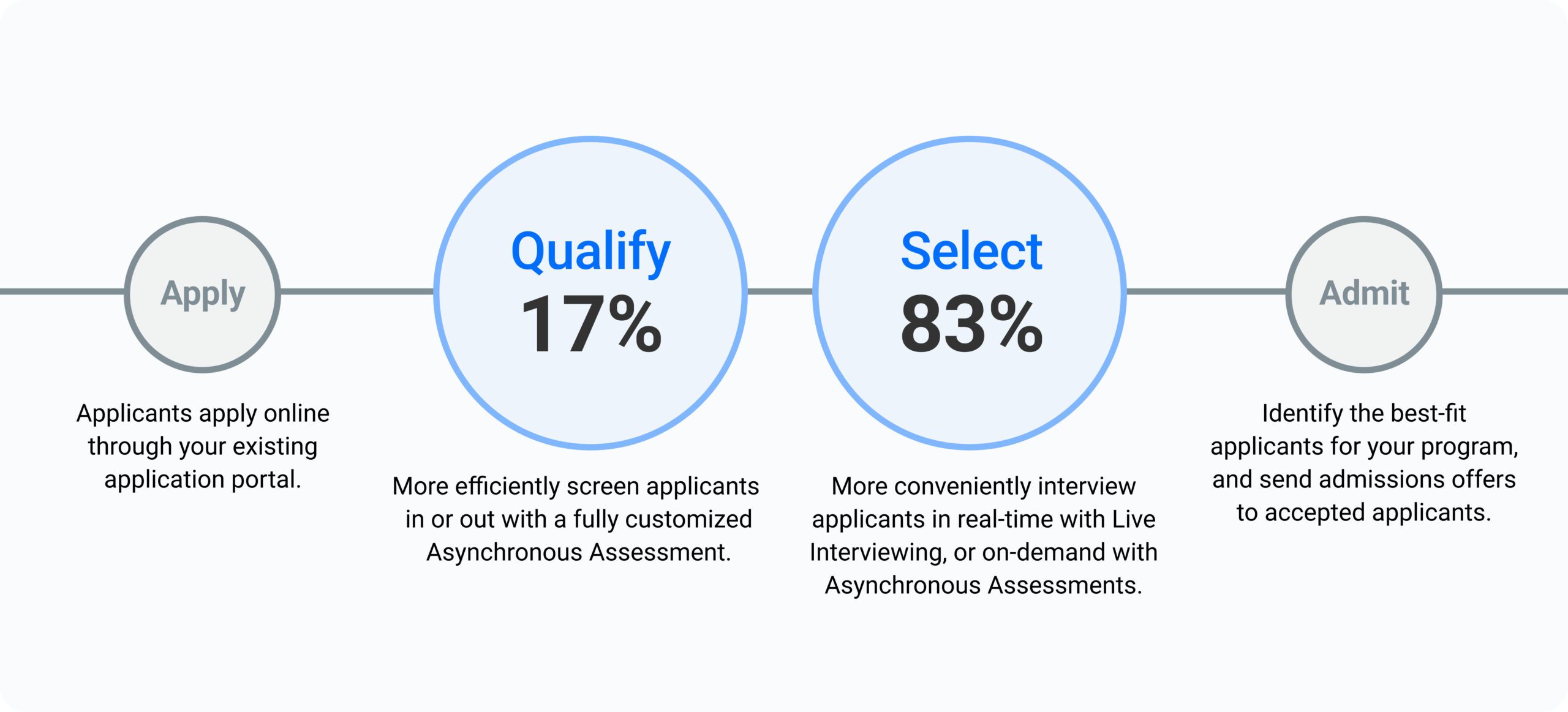
What’s top of mind for scholarship and mentor programs in 2023?
![]() “Transitioning our in-person interviews onto Kira Talent as well.”
“Transitioning our in-person interviews onto Kira Talent as well.”
![]() “Identifying top talent to offer scholarships to.”
“Identifying top talent to offer scholarships to.”
![]() “Increasing process efficiency for our staff and applicants.”
“Increasing process efficiency for our staff and applicants.”


